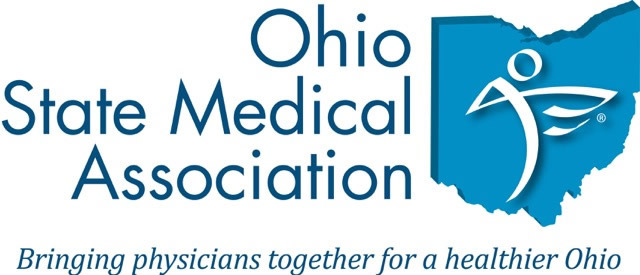Complete Story
10/16/2025
Update on OSMA Activity with Insurance Reform Legislation
Over the last few weeks, there has been a significant amount of activity on numerous insurance reform proposals that OSMA is supporting in the Ohio Legislature. Make sure you are caught up on all of the progress these bills are making—read on for a quick summary of the hearings thus far!
Proponent Testimony Hearings:
SB 160: Non-Medical Switching
On September 30, OSMA VP of Advocacy Monica Hueckel testified in support of Senate Bill 160 in a hearing of the Ohio Senate Financial Institutions, Insurance, and Technology Committee. SB 160 is sponsored by Senators (and physicians) Dr. Terry Johnson (R-McDermott) and Dr. Beth Liston (D-Dublin). As a reminder, this legislation prohibits the practice of “non-medical switching” in the middle of a plan year. Non-medical switching is when the insurer requires a patient to switch from their current medication to a different medication for reasons unrelated to the patients’ health, or for “non-medical” reasons. Dr. Stephanie Ott was also on-hand to testify on behalf of the Ohio Association of Rheumatology. Dr. Ott, who is also an OSMA member, was able to provide powerful testimony from the clinical perspective, detailing the negative impacts of non-medical switching on her patients. For more information on this hearing, see our update here.
HB 219: Network Adequacy
Monica Hueckel once again testified on behalf of OSMA on October 7, this time in support of House Bill 219 in a hearing of the House Insurance Committee. HB 219 is sponsored by Rep. Kellie Deeter (R-Norwalk). This legislation would establish standards for both the creation and maintenance of insurance networks and assure the adequacy, accessibility, transparency, and quality of health care services being offered under a network plan. Ohio is one of only a few states in the country that does not already have network adequacy requirements for commercial health insurance plans. For more details, see our update here.
Sponsor Testimony Hearings:
SB 162: Takebacks
The September 30 hearing of the Ohio Senate Financial Institutions, Insurance, and Technology Committee also hosted the sponsor testimony hearing of Senate Bill 162. This legislation is sponsored by Sen. Bill Blessing (R-Colerain Twp.), who formally introduced SB 162 to the Committee, explaining that it would limit insurer takebacks, which occur when an insurance company retroactively denies or reclaims payments made to healthcare providers, often months or years after the claim was processed. Specifically, SB 162 would change Ohio’s current 24-month insurer takeback timeframe, decreasing it to the same timeframe given to a provider to submit a claim, and also prohibit insurers from changing these timeframes during a contract period.
SB 207: Copay Accumulators
The first hearing for Senate Bill 207 was also on September 30 in the Ohio Senate Financial Institutions, Insurance, and Technology Committee. SB 207 has been reintroduced from the prior general assembly. This legislation addresses what is known as copay accumulator policies, and would require health insurers to count amounts paid by or on behalf of covered individuals toward deductibles and cost-sharing requirements. Sponsors Sen. Susan Manchester (R-Waynesfield) and Sen. Beth Liston (D-Dublin) provided testimony explaining what copay accumulator policies are and how they cause financial burden for patients and might even lead to patients abandoning their medication treatments altogether. Learn more about the first hearings of SB 162 and SB 207 here.
SB 165: Automatic Downcoding & Prudent Layperson
On October 14, Senate Bill 165 had its first hearing, also in the Ohio Senate Financial Institutions, Insurance, and Technology Committee. Sponsor Sen. Susan Manchester (R-Waynesfield) provided testimony to Committee members, describing how this legislation would prohibit automatic downcoding and strengthen Ohio's prudent layperson standard. Ohio's current prudent layperson standard law means that if an individual with average medical knowledge would reasonably believe under the circumstances that they have an emergency medical condition, their visit to the emergency department should be considered a medical emergency and insurance should cover it as an emergency. Unfortunately, some insurers are denying coverage if, after medical screening, the patient's condition is determined to be non-emergent. This results in unexpected, high out-of-pocket costs for the patient. SB 165 would provide additional protection for patients from instances like these.
This legislation also prohibits health plans from downcoding payments for all providers and includes a prohibition on limitations on reimbursement for time spent with patients. This is a huge issue for our physician members—we consistently hear from many physicians and their staff in practices all over the state about the burdens of downcoding. Downcoded visits can be appealed, but each appeal is time-consuming, requiring pulling documentation and re-submitting information to the insurer, then waiting for a determination once again. This is an especially burdensome (and costly) process for smaller, independent practices to navigate. SB 165 aims to relieve this source of stress on practices and free up more time and resources for optimal patient care delivery.
